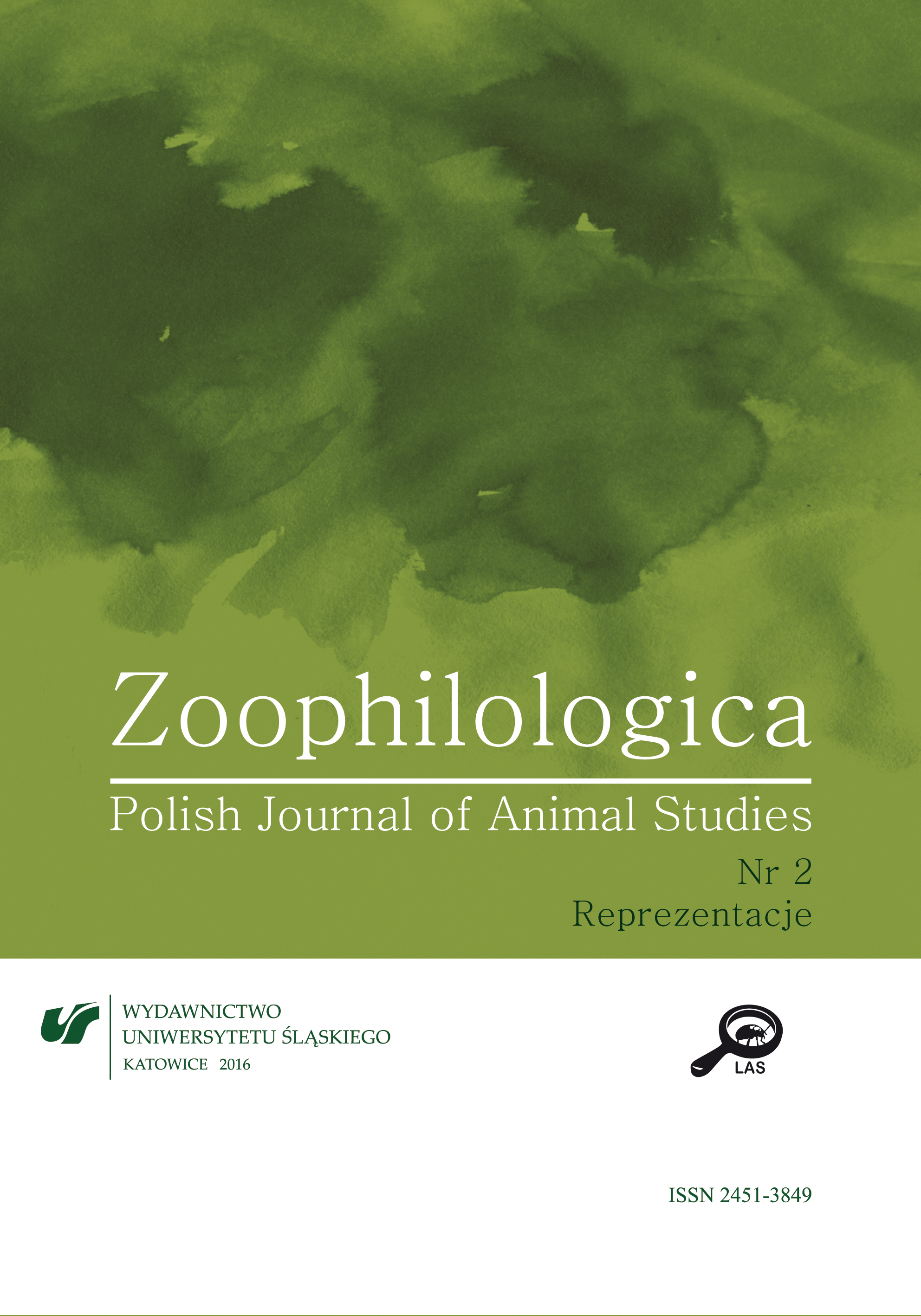Canis lupus i tajemnice ludzkiej duszy. O literackim obrazie wilka na przykładzie wybranych dzieł niemiecko‑ i anglojęzycznych
Canis lupus and the mysteries of the human soul. The literary representation of the wolf, philosophy and the sense of life in selected works in German and English
Author(s): Aneta JurzystaSubject(s): Philosophy, Language and Literature Studies, Studies of Literature, Comparative Study of Literature, German Literature, Other Language Literature, Existentialism, Theory of Literature
Published by: Wydawnictwo Uniwersytetu Śląskiego
Keywords: wolf; philosophy; existentialism; Hesse; Rowlands; nature
Summary/Abstract: The article is devoted to the literary representation of the wolf, and the texts analysed include Hermann Hesse’s “Steppenwolf” and Mark Rowlands’ “The Philosopher and the Wolf”. In both texts the wolf becomes the mirror in which the man’s inner life is reflected, and the authors search for the answers to existential questions in the wolfish nature. “And so the Steppenwolf had two natures, a human and a wolfish one. This was his fate, and it may well be that it was not a very exceptional one.” Those words of Hermann Hesse refer to the complicated, split personality of the main protagonist and the complex nature of every man. Harry is partly a man, who desires social respect and the comforts of the middle‑class life, and shares human ideas and interests, and partly a wild beast, who mocks these vain and absurd desires, and remains untamed and impulsive. Mark Rowlands’ wolf is not only part of the author’s inner self, but a wild animal, with which the American philosopher spent 11 years of his life. The wolf companion changes completely the man’s way of thinking, becoming an inspiration for philosophical considerations over the nature of love, death, happiness and humanity, the purposefulness of human actions, the sources of despair and hope, the nature of the fear of death. The wolf ’s company makes it possible for Rowlands to find his human nature, makes him eventually become a different person: of partly human and partly wolfish nature. In both cases the wolf (being either part of a man’s personality or a real wild companion) determines the protagonists’ lives and helps them understand themselves.
Journal: ZOOPHILOLOGICA. Polish Journal of Animal Studies
- Issue Year: 2016
- Issue No: 2
- Page Range: 205-224
- Page Count: 20
- Language: Polish

